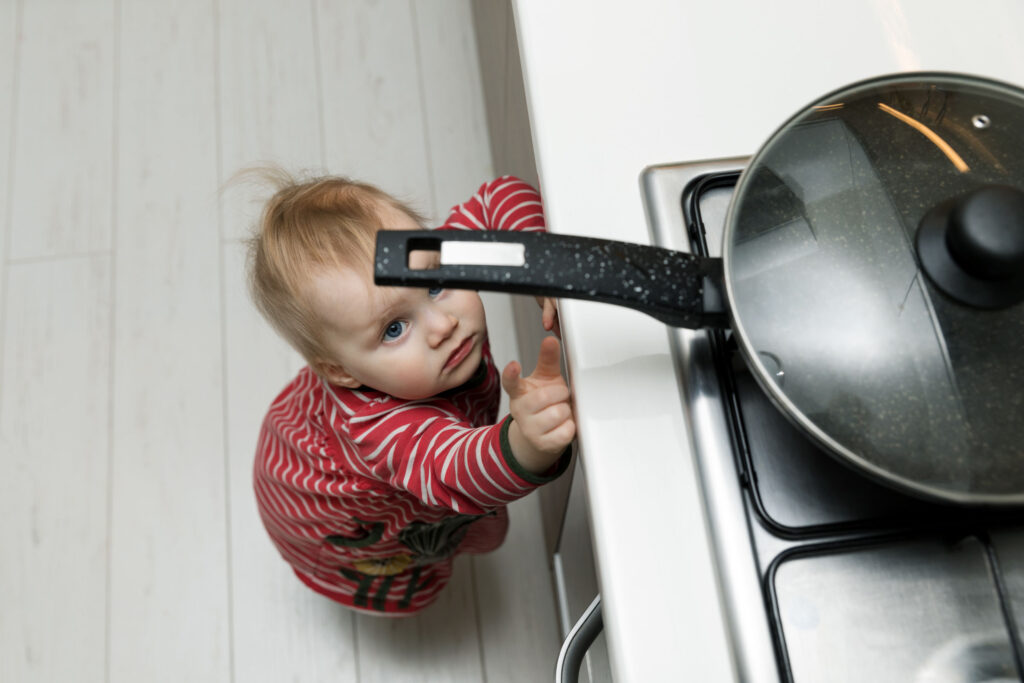
Arizona has been under a stay-at-home order since March 31, 2020 due to the coronavirus outbreak. Governor Doug Ducey expects the order to last until April 30 2020, at the least. As a result, millions of Arizonans are staying at home in order to prevent COVID-19 infections. While this is best for public safety, those unaccustomed to spending the majority of their days at home need to be wary of household dangers. To help keep you and your family safe, Lerner and Rowe Injury Attorneys has assembled a list of safety tips to follow during the Arizona coronavirus quarantine period.
Mind Your Outlets, Wires, and Plugs
Household appliances are being used more frequently during the Arizona coronavirus quarantine. To keep everyone in your household safe, it’s important to inspect all of your outlets, wires, and plugs. Make sure that all of your cords and plugs are undamaged, and order replacements if they’re in poor condition. Inspect your outlets to see if they are in working order and not overloaded.
Since your home is drawing more power than normal, it’s essential to make sure that plugs, wires, and outlets are safe. A broken link in the chain could lead to a family member being electrocuted or suffering a burn injury.
Dry Up Wet Surfaces and Keep Pathways Clear
Wet surfaces can be treacherous and lead to a slip-and-fall injury. Bathrooms and kitchens will inevitably get wet, but that doesn’t mean that they have to be dangerous. Clean up any oil or liquid spills in the kitchen as soon as possible. Be sure to have non-slip bath mats by the shower and tub.
Preventable slip-and-falls during the Arizona coronavirus quarantine can happen throughout the house. Clear pathways and stairways of any obstacles, and make sure those areas of the house are well-lit. A simple stumble over an innocuous toy on the stairs could lead to a life-altering injury.
Clean and Maintain Your Kitchen Appliances
The kitchen is one of the most potentially dangerous rooms in the house. Cleanliness is crucial in making sure that a kitchen is safe. Spilt food in the oven can pile up and burn. Grease deposits on the range can cause a flame to flare up. Keeping your oven and range clean during the Arizona coronavirus quarantine can prevent a fire from happening.
Special care is needed if your oven and range use gas. Make sure that all of your pilot lights are on. Having a gas leak detector is a great idea as well. Plug-in units are great for general safety, while handheld units allow you to precisely pinpoint the location of a gas leak.
Secure Poisonous Products
Safely store any products that may poison the children in your household. Bleach, detergents, and household cleaners can be deadly if ingested. Since your kids will also be spending more time at home, they may get restless and curious. Don’t let them find products that may harm them. Should they ingest or inhale any dangerous substances, contact Arizona Poison and Drug Information Center.
Lerner and Rowe is Here For You During the Arizona Coronavirus Quarantine
The injuries described above can be prevented with some simple care. However, they can also happen because of manufacturer negligence. If you suspect that your injury was caused by a dangerous product, please contact Lerner and Rowe Injury Attorneys immediately. For now, please know that our entire team hopes that you and your family stay safe and healthy during this unprecedented time. For more Arizona coronavirus quarantine safety tips, please read our Arizona COVID-19 safety guide and Arizona coronavirus park safety blog.
You can reach Lerner and Rowe Injury Attorneys 24/7 by phone at 602-977-1900 or online through LiveChat and secure contact form. Consultations are free, so you have nothing to lose, and our attorneys do not charge fees unless your case is won.



